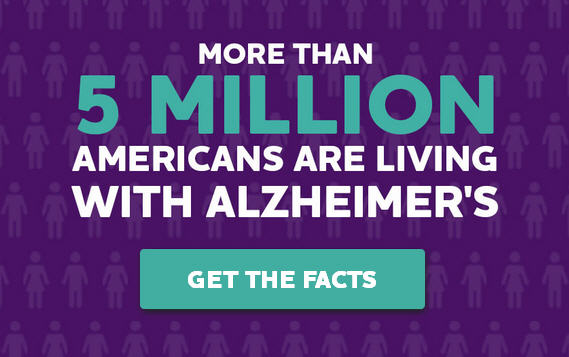(Alzheimer’s Association) Although current medications cannot cure Alzheimer’s or stop it from progressing, they may help lessen symptoms, such as memory loss and confusion, for a limited time.
Types of Drugs
The U.S. Food and Drug Administration (FDA) has approved two types of medications — cholinesterase inhibitors (Aricept, Exelon, Razadyne) and memantine (Namenda) — to treat the cognitive symptoms (memory loss, confusion, and problems with thinking and reasoning) of Alzheimer’s disease.
As Alzheimer’s progresses, brain cells die and connections among cells are lost, causing cognitive symptoms to worsen. While current medications cannot stop the damage Alzheimer’s causes to brain cells, they may help lessen or stabilize symptoms for a limited time by affecting certain chemicals involved in carrying messages among the brain’s nerve cells. Doctors sometimes prescribe both types of medications together. Some doctors also prescribe high doses of vitamin E for cognitive changes of Alzheimer’s disease.
Learn more: How Alzheimer’s Medications Work
Medications for Early to Moderate Stages
All of the prescription medications currently approved to treat Alzheimer’s symptoms in early to moderate stages are from a class of drugs called cholinesterase inhibitors. Cholinesterase inhibitors are prescribed to treat symptoms related to memory, thinking, language, judgment and other thought processes.
- Prevent the breakdown of acetylcholine (a-SEA-til-KOH-lean), a chemical messenger important for learning and memory. This supports communication among nerve cells by keeping acetylcholine levels high.
- Delay worsening of symptoms for 6 to 12 months, on average, for about half the people who take them.
- Are generally well tolerated. If side effects occur, they commonly include nausea, vomiting, loss of appetite and increased frequency of bowel movements.
Three cholinesterase inhibitors are commonly prescribed:
- Donepezil (Aricept) is approved to treat all stages of Alzheimer’s.
- Rivastigmine (Exelon) is approved to treat mild to moderate Alzheimer’s.
- Galantamine (Razadyne) is approved to treat mild to moderate Alzheimer’s.
Medication for Moderate to Severe Stages
A second type of medication, memantine (Namenda) is approved by the FDA for treatment of moderate to severe Alzheimer’s.
Memantine is prescribed to improve memory, attention, reason, language and the ability to perform simple tasks. It can be used alone or with other Alzheimer’s disease treatments. There is some evidence that individuals with moderate to severe Alzheimer’s who are taking a cholinesterase inhibitor might benefit by also taking memantine. Donepezil (Aricept) is the only cholinesterase inhibitor approved to treat all stages of Alzheimer’s disease, including moderate to severe.
- Regulates the activity of glutamate, a different messenger chemical involved in learning and memory.
- Delays worsening of symptoms for some people temporarily. Many experts consider its benefits similar to those of cholinesterase inhibitors.
- Can cause side effects, including headache, constipation, confusion and dizziness.
Treatments-at-a-Glance
| Generic | Brand | Approved For | Side Effects |
| donepezil | Aricept | All stages | Nausea, vomiting, loss of appetite and increased frequency of bowel movements. |
| galantamine | Razadyne | Mild to moderate | Nausea, vomiting, loss of appetite and increased frequency of bowel movements. |
| memantine | Namenda | Moderate to severe | Headache, constipation, confusion and dizziness. |
| rivastigmine | Exelon | Mild to moderate | Nausea, vomiting, loss of appetite and increased frequency of bowel movements. |
| memantine + donepezil | Namzaric | Moderate to severe | Headache, diarrhea, dizziness, loss of appetite, vomiting, nausea, and bruising. |
Related Information
- FDA-Approved Treatments for Alzheimer’s
- Treatments for Behaviors
- Treatments for Sleep Changes
- Treatment Horizon
- Pulse of Drug Development

http://www.alz.org/alzheimers_disease_standard_prescriptions.asp
Copyright © 2016 Alzheimer’s Association®. All rights reserved.







